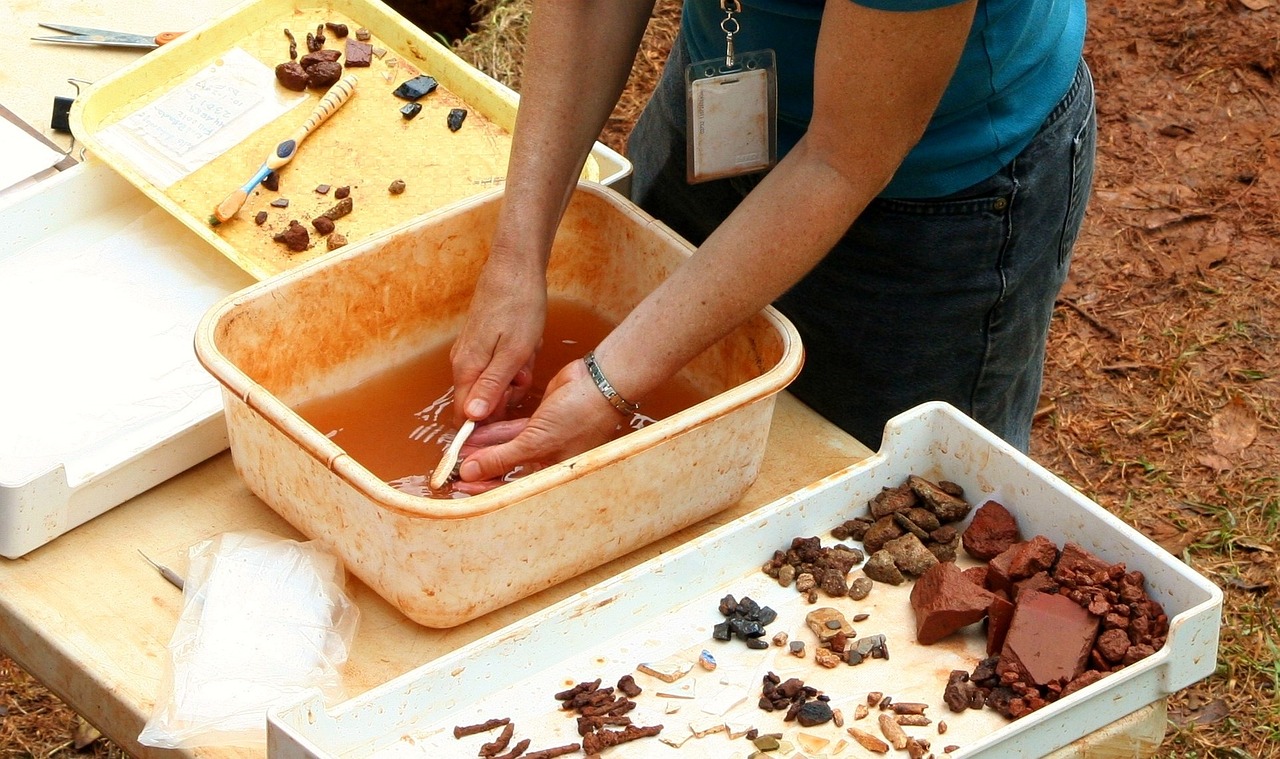 My friend and long-time hearing aid wearer checked off a bucket list item in June: experience an archeology dig in the Middle East for two weeks. Temperatures often rose to 90 degrees and the day was spent gently digging and sweeping out pottery, flint, and other artifacts from a pit of dusty, compacted clay. Then, a hike to haul the large bucket of finds to the sifting station up a hill. It was hard and sweaty yet satisfying work. Her hearing aids were her valuable companions as she had to listen out for other crew members’ guidance, instructions on how to best preserve her finds, and enjoying conversation with people from around the world at their group meals and lectures.
My friend and long-time hearing aid wearer checked off a bucket list item in June: experience an archeology dig in the Middle East for two weeks. Temperatures often rose to 90 degrees and the day was spent gently digging and sweeping out pottery, flint, and other artifacts from a pit of dusty, compacted clay. Then, a hike to haul the large bucket of finds to the sifting station up a hill. It was hard and sweaty yet satisfying work. Her hearing aids were her valuable companions as she had to listen out for other crew members’ guidance, instructions on how to best preserve her finds, and enjoying conversation with people from around the world at their group meals and lectures.
When she returned, I noticed that her hearing was not as sharp as it had been earlier in the year. A hearing test had shown no decline, so we wondered…could the hearing aids have been impacted by her travel environment? What is the accurate guidance on how often a hearing aid should be cleaned by a professional? We learned that it depends!
Many hearing care practices advise that six months is standard practice to having your hearing aids deep cleaned by a professional. But here are some additional points to consider that may cause your routine clean to be shorter or longer than the standard practice:
It is advised that hearing aids should be cleaned at least weekly at home. Cleaning instructions from the hearing aid manufacturer should be provided when purchasing your hearing aids or located in your user’s manual. If you do not have instructions, contact your hearing care professional for a clean and guidance on the best method of at-home care for your particular type of hearing aid.
If you wear your hearing aids while participating in sweaty activities on a daily or weekly basis, it’s a good idea to have the hearing aids cleaned by a professional at regular intervals. When you schedule your next cleaning, chat with your hearing care professional and discuss your activity level. They will be able to recommend a schedule of cleaning to keep your hearing aid devices working at their best.
Dehumidifying containers usually have gel or crystals inside them that, once sealed closed with your hearing aids inside, wick moisture from your hearing aid. If you are not using a dehumidifier, a deep clean from your hearing care professional is advised to ensure that moisture and buildup in and around the hearing aid casing is removed.
As stated above, moisture such as sweat, can quickly deteriorate a hearing aid’s functioning. Dust particles can impact crevices of the hearing aid such as the microphone and be sure to check your earmold or dome for earwax that may be blocking the receiver. After returning from a trip in this environment, schedule a clean. If you live in an area like this, regular professional cleaning is advised.
Hearing aids are remarkable, technologically advanced devices that significantly improve the quality of life for millions of people. Ensure your hearing aids receive regular maintenance to function optimally. Cleaning your hearing aids at home and scheduling a deep clean as needed at your hearing care professional’s office can significantly improve the function and lifespan of your hearing aids.
Need more information about hearing health or a list of nearby licensed hearing care professionals that can answer questions? Visit Hearing.org to learn more!